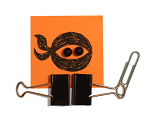An employee is ultimately in control of how productive he or she is. It’s their decision to check
Facebook incessantly, or to discuss this weekend’s plans with a colleague over a cup of coffee. To stay productive, an employee needs to be – to a certain extent – focused and organized – two extremely challenging concepts without the backing of a supportive company.
Often, too much blame is placed on the employee for not hitting a deadline or leaving a project unfinished. But employers can foster a productive environment simply by looking to the root of the problem. What causes employees to be unproductive at work?
A lack of focus
Procrastination is productivity’s greatest nemesis. At certain points during our working day, our minds start to wander. A
recent study found that the most unproductive time of day for workers is 2:55pm. Lunch has been consumed and the mid-afternoon slump hits. The temptation to do anything but work is overwhelming. So, how do we stay focused?
It is easy as a manager to make demands and expect them to be met. But how many employees work in a cone of silence? Without taking into account the kind of distractions we bring upon ourselves, such as watching a YouTube video or messaging friends – as workers we are expected to reply to emails, answer the phone or send out a package to a client – all the while juggling an existing task.
To prevent this kind of distraction, managers can increase productivity by supporting power hours. Even one power hour per week, where email is banned, is a great way to support staff to work on creative projects or simply tackle their most avoided tasks outside of email.
But it is important to remember that not all employees work in the same way. Some thrive in a busy environment and enjoy bouncing ideas off of colleagues. Others work best in a quiet space, away from noise and interruptions. One (slightly unorthodox) method is to seat employees according to their work style, rather than by functional groups. Those who like silence can enjoy the peace, and others who enjoy an active workplace needn’t feel like they are bothering their colleagues.
The stress factor
Stress is something that can never be completely avoided in a working environment. Managers put extra strain on employees as a result of pressures to meet financial targets and other deadlines. Although this can increase productivity, if employees feel overburdened or out of their depth, this kind of pressure can have the opposite effect and instead multiplies stress in the workplace.
Encouraging mindfulness is a great way to help to combat stress. We have all experienced the feeling that our head might explode for one reason or another, and practicing meditation is a great way to restore calm and inner peace during these times. Taking a moment to relax and reflect on the problem may cause us to rethink what provoked the stress reaction in the first place.
Sometimes, the root of stress lies in the number of unfinished tasks buzzing around our brains. To encourage employees to put these concerns elsewhere, suggest that they conduct a
weekly review to help them to prepare for the week ahead. It is up to the employee what they choose to focus on – but some great ideas include clearing your inbox, writing down new ideas and clarifying any unanswered questions. They should choose to complete the review in a time and a place where they work best in order to keep focused.
So much work, so little time
How many times have you written a ‘to do’ list and ticked everything off? It’s a rarity to enjoy moments of solitude at work. So as a manager, instead of barking at your employees to finish everything, understand that sometimes the work cannot be completed in the timeframe given.
Recently, Sweden avoided the norms of society by introducing
six-hour working days into their workplaces. Not necessarily the most conventional idea, but there is some logic to its madness – or brilliance – whichever way you look at it. Linus Feldt, CEO of Stockholm-based app developer Filimundus, argues that working eight hours per day is not as effective as some people think. “To stay focused on a specific work task for eight hours is a huge challenge,” he said. “In order to cope, we mix in things and pauses to make the work day more endurable. At the same time, we are having to manage our private life outside of work."
Other companies encourage employees to work a four-day week to help combat stress and improve job satisfaction. Take Parkinson’s Law – work expands to fill the time available for its completion. In other words, if you assign yourself a week to complete a four-hour task, psychologically, this task seems more complex. By assigning the right amount of hours to a task, it won’t seem so daunting and you are more likely to be productive for the remainder of the working week.
Leave it to them
The best way to create a productive culture within your company is to pass the decision of how to manage time and resources into the hands of the employees. Having a greater understanding of the methods in which productivity can be increased will give employees the freedom to explore which method will help them to work best.

